Death of Adventure and the Wide Open World: Young American Men Without a Rite of Passage
If we don't ever leave the ordinary world, what do we become?
Welcome to today’s issue of That's A Good Idea. If this is your first time reading, subscribe here.
Two quick things:
If there is a recent essay here that has sparked your curiosity, given you a new idea, or in any way contributed positively to your daily life, let me know below in the comments. That’s A Good Idea is a constantly evolving publication and I want to know what piques your mind. If you’re a writer, you are likely familiar with the inclination to get lost down whatever road in your mind that you see. While I aim to vary the topics each week, I want this to remain something you look forward to reading and to do so I thrive on suggestions and feedback.
Additionally, if these short essays and explorations bring value to your life, consider becoming a paid subscriber for only $5 a month. I love writing and sharing ideas with you, and any support is greatly appreciated. In the meantime, I hope you enjoy this week’s issue.
In his well-known book “The Hero With a Thousand Faces”, Joseph Campbell wrote of the monomyth. A universal pattern of storytelling is present in all human cultures, regardless of time or place.
You might recognize this story as the hero’s journey, and the first five — phases are structured like so:
1. The Ordinary World: This is where the hero starts, in a familiar, everyday setting. It is Luke Skywalker living with his Aunt and Uncle on Tatooine. It is Odysseus dreaming of his return to Ithaca after the Trojan War. This is the establishment of the hero's normal life. What they stand to lose or gain.
2. The Call to Adventure: The hero receives a challenge, quest, or invitation to step into the unknown. Often a disruptive event presents a problem or conflict that needs resolution.
3. Refusal of the Call: Due to fear, obligation, or any range of emotions, the hero initially hesitates or declines the call to adventure. This serves to heighten the stakes and makes the hero's eventual acceptance more meaningful.
4. Meeting with the Mentor: The hero encounters a mentor figure who provides advice, training, or an essential item for the journey. This mentor often prepares the hero for the challenges ahead and offers the necessary wisdom or skills. Figures like Gandalf in “The Lord of the Rings”, and Rafiki in “The Lion King”.
5. Crossing the Threshold: At this point, the hero commits to the adventure and leaves the ordinary world to enter the special world or the unknown. This stage represents the hero's first steps into danger, where they encounter challenges and tests different from what they're used to. The "threshold" often has guardians or challenges that further emphasize the shift from the hero's familiar world to one of uncertainty. It symbolizes the point of no return
This universal structure that Campbell identified is more than a framework for a compelling story, it is a map of the psychological bridge that we all must cross in life to transition from a stage of ignorant infancy, into the spiritual, mental, and physical potential that lay dormant in all of us. It is a guide to a better world.
If we choose to stay in the ordinary world and ignore the call to adventure, we never pass beyond the threshold of who we could be. We return with no gifts of knowledge, no wisdom, and no understanding of the outside. Imagine the Shire burning because neither Bilbo nor Frodo had the courage to leave Bag End.
The ordinary world makes sense to us. We have been raised in it, nurtured, and comforted in it. And when no one is there to push young men out the door when adventure calls, there is only decay.
If you have a hunch that the spirit of young men has been neutered, you’re right. And I shouldn’t need to tell you why we should care.
Here are some stats about American men:
Jobs: In 1980, 85% of 25-year-old men had full-time jobs. In 2023 that number is 71%.
Dating: In 2019, 51% of men under 30 were single. In 2023, that number is 63%.
Friendship: In 1990, 3% of men said they had no close friends. In 2023, that number is 15%.
Long-Term Relationships: In 2014, more young men lived with their parents than they did with a partner. A number that has almost assuredly increased.
Parenting: Currently, one in five fathers doesn’t live with his children.
Deaths of Despair: Men account for 75% of all deaths of despair: suicide and drug overdose.
Cultural Critic and Writer Camille Paglia said:
A woman simply is, but a man must become. Masculinity is risky and elusive. It is achieved by a revolt from women, and it is confirmed only by other men. Manhood coerced into sensitivity is no manhood at all.
So what are men becoming today?
The data paints a bleak picture. We’re more isolated, less motivated, and more willing to self-sabotage than ever before.
And we’ve been severed from the psychological stage of development that is most important for our growth — the call to adventure, out of the ordinary world. Either we’re not hearing it, or we’re ignoring it. The consequences are clear
Historically, the call to adventure was enforced through strict codes and rituals. A boy was forced to undergo his transformation, and the hero’s journey, intuited by elder members of the culture, laid the framework as it had been laid for them.
The Comanche Indians, who ruled the prairie ocean of the modern-day Great Plains states of Texas and Oklahoma, required a boy to kill a buffalo on mounted horseback to become a respected man in the tribe.
At the age of 18, boys in the Ancient Greek city-states entered the Ephebia — a school of physical education — where they would undergo two mandatory years of intense training before being sent to protect the frontier of the city-state. They would cut off their long hair, and swear an oath of allegiance to the city-state. At the end of their frontier deployment, the young men were presented with a spear and a shield by the state, signifying their transition from boyhood to full citizenship, allowing them to participate in the Assembly and other civic duties.
Even the 18th-century sons of the English gentry had required rites in order to become respected members of adult society. Some of these included: A grand tour of Europe to complete one’s education, religious confirmation, and finally marriage to a distinguished woman of noble birth.
While rites of passage differ from culture to culture, they share the common characteristic of being socially enforced. Shame, ostracization, and even banishment were consequences of repeated failure or refusal. These rites ensured a state and culture that was unified under a set of guiding principles and codes of honor. A reflection of the necessary baseline of competence and experience needed to allow the society to continue to prosper and grow.
Without social enforcement, the youth do what they’ve always done. Without leaders to push them out the door, they stay in the ordinary world, where the food is plentiful, the pleasure abundant, and the risks minimal.
If this code becomes lost, even in one generation, the next suffers.
The Choice is Yours
Today, young men have to choose their own path out of the ordinary world.
This is the only option.
The traditional coming-of-age institutions in the West have become cheap facsimiles. Universities are ideologically captured, expensive, and over-saturated with unremarkable and mediocre people. The Military has lowered its standards and suffers from much of the same ideological capture as educational institutions. The life of the motivated, ladder-climbing, corporate 9-5’er father of two is a dead relic, and rightly so. The swipe-heavy dating market has become a nightmare.
Older generations cannot relate, and yet they speak from a place of their own wisdom and experience. They encourage a path that existed in their youth. But the world has changed faster than they can comprehend.
The paths that have given men power and esteem, in the eyes of themselves, their family, and their peers, simply don’t exist like they used to.
That isn’t to say there aren’t exceptions to these rules. These changes reflect an overall feminization and digital narrowing of society. The constant appeal to emotion, the safety-ism, the buzzwords of “patriarchy” and “toxic masculinity”. Men are told that the act of becoming, as Paglia said, is neither necessary nor fruitful. We’re told that it’s dangerous.
We know what autocratic, militarized male societies look like at scale, and now we’re seeing the inverse. Look at the language all around you. Look at the “men” in movies, advertisements, and other media. Once you see it, you can’t unsee it.
Some men are destined to pave over these inconvenient realities and make their way. They have thumos, the Ancient Greek word for “spiritedness and vitality”. But we don’t need some men. We need as many men as possible: the ones addicted to porn, video games cheap dopamine, and endless calories. The ones who feel abandoned, desolate, and lonely.
There is a calling in each of us, as depressed and lonely as some of us may be, that compels us out the front door. To move to a new city, sign up for a marathon, walk into an uncomfortable environment, travel, and work on an isolated corner of the map. And we are the only people who can do something about it.
If you’re a young man reading this, if you relate to this feeling of isolation, loss, or resentment, you have a choice to make.
Outside of the screen is a vast, beautiful, dangerous, and expansive reality waiting for you to find it. It might mean quitting your job, moving from family; thinking hard about the safety net of your friends and environment. But what other choice is there?
You have the same blood in you that sailed uncharted oceans, hunted large game, built railroads, fought in war, and spawned life stretching back to the beginning of time.
What are you going to contribute to this great chain of being?
What prize will you bring back from the great beyond?
What stories will you tell your grandchildren?
If you’re not becoming you’re stagnating.





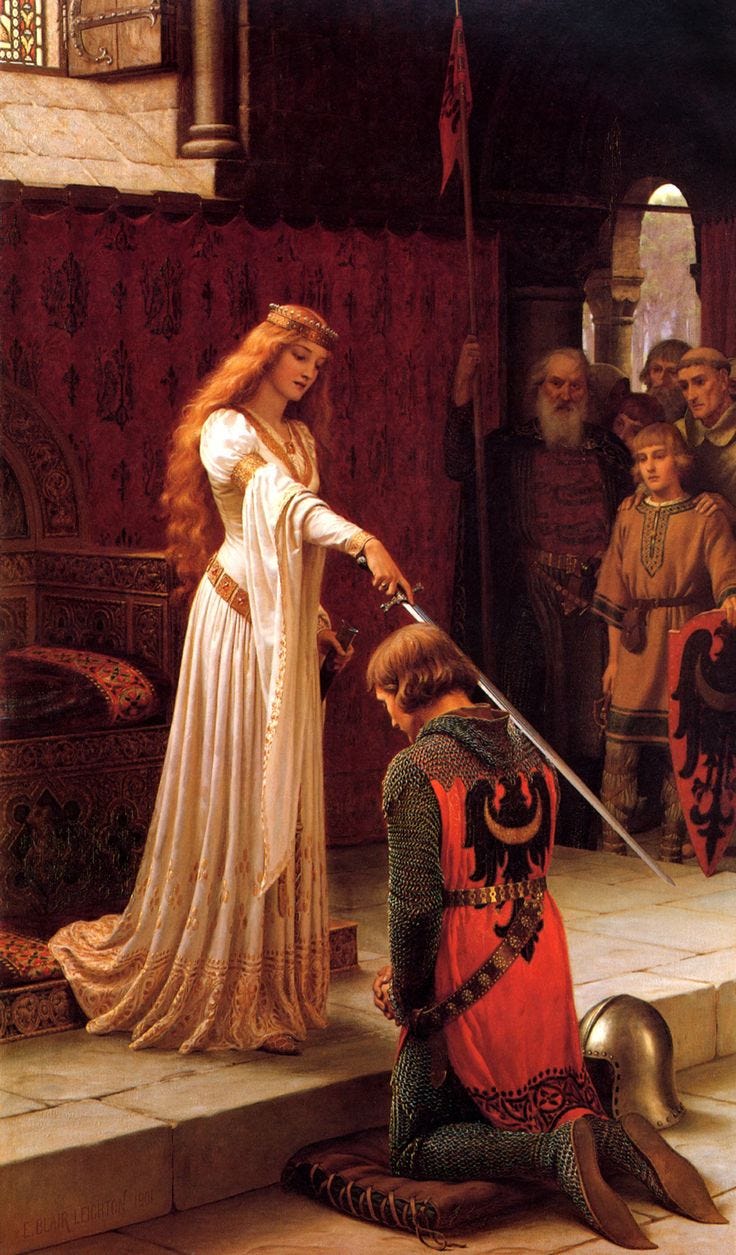

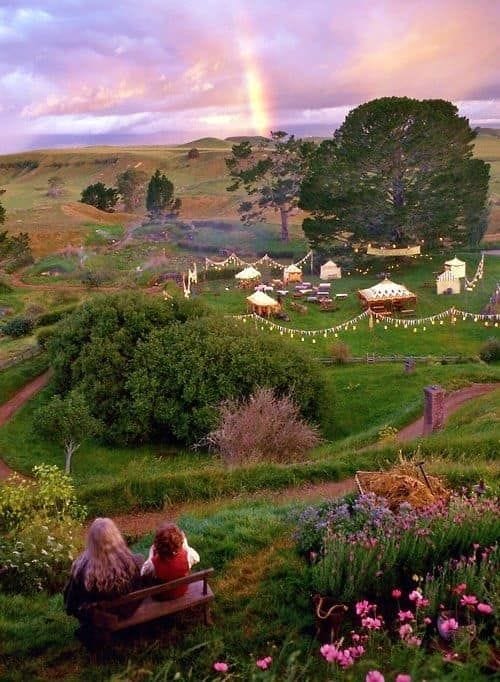

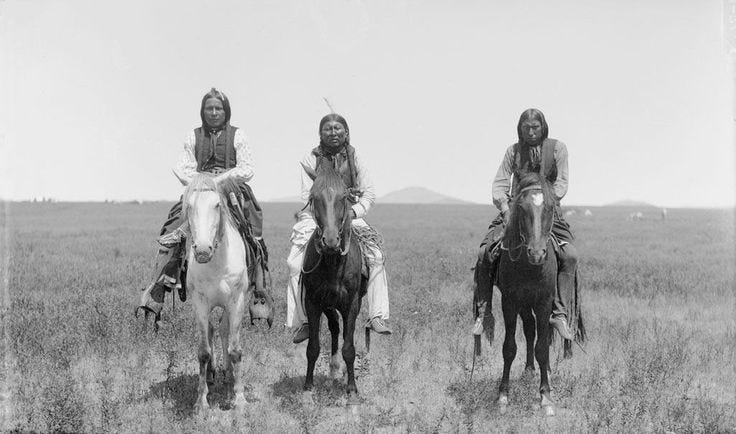
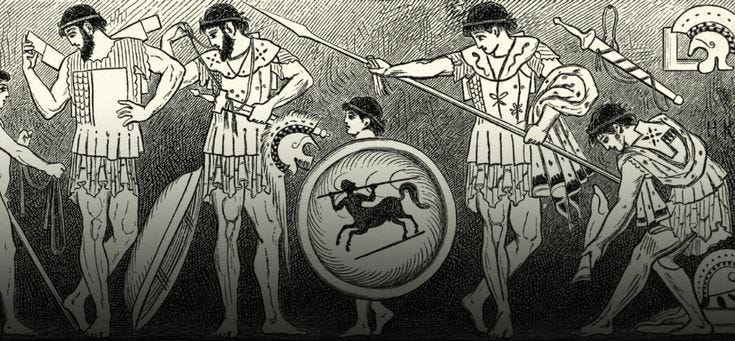
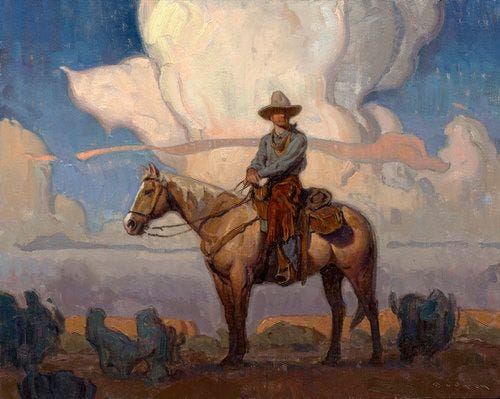

Joe I really enjoyed this timely and necessary message. As a father of 6 boys I see what is happening to men in our culture and I am worried for my sons. Our culture has lost the rites of passages for young men and their is a growing movement of men who see this dangerous problem and are working to turn the tide. The old adage of goodtimes make weak men is very real. In an over indulgent society that teaches the young to gratify their every desire its becoming very difficult to raise men in this toxic environment. Its a tall but important task to bring up men who want to embrace challenge adventure and live a strenuous life as Roosevelt would say. Great article. You should submit your writings to the cultural section on the Epoch times!. Keep up the good work.
20 years ago, a man in my 30s I read Joseph Campbell’s series of books, “The Masks of God”. I was living in Moscow, Russia, myself. I was studying art. I had a great mentor. I felt as though I was living that life already. I was very inspired by his insights and thoughts. We, as a society, have most certainly have lost the spirit of adventure. Our homes are prefabs; we get our food from Walmart; life has become dictated; with identity politics, we’ve, as men have become figuratively and literally be castrated. The most adventurous man, in my view was Jesus Christ. With the suppression of Christianity, I see us losing our needed manhood.